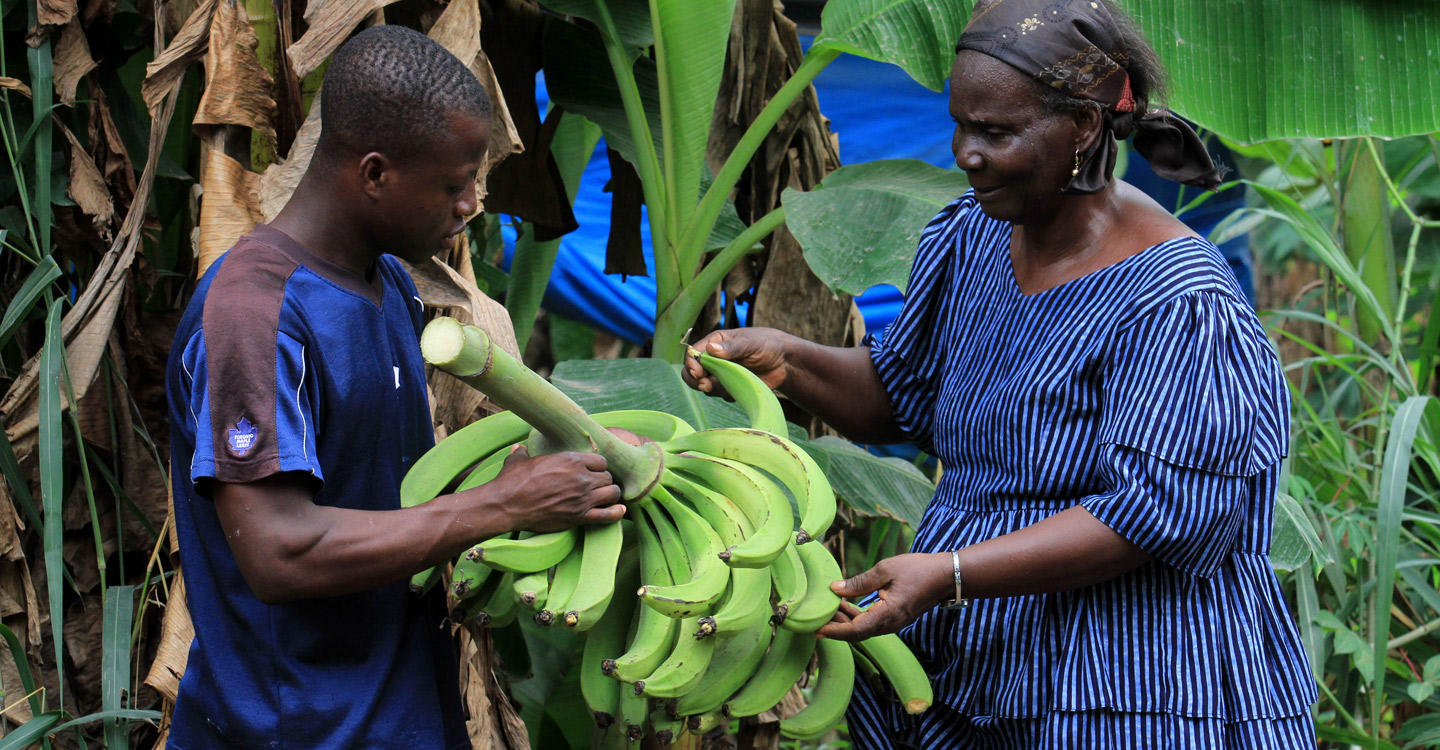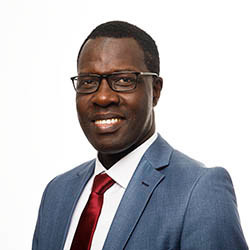A new strategic opportunities programme to strengthen the partnership between Côte d’Ivoire and IFAD
IFAD Asset Request Portlet
Asset Publisher
A new strategic opportunities programme to strengthen the partnership between Côte d’Ivoire and IFAD
19 July 2021
Rome, 19 July 2021 - The International Fund for Agricultural Development (IFAD) and the Government of Côte d’Ivoire held a workshop in Abidjan on 15 July 2021 to present the new strategic opportunities programme for Côte d’Ivoire for the period 2020–2025 to all stakeholders involved in agricultural and rural development.
The meeting was led by Kobenan Kouassi Adjoumani, Minister of Agriculture and Rural Development of Côte d’Ivoire, with Nadine Gbossa, Regional Director of IFAD’s West and Central Africa Division, and Amath Pathé Sene, Director ad-interim of IFAD’s Subregional Office for Coastal States in Abidjan, in attendance.
The new IFAD strategic framework in Côte d’Ivoire identifies the strategic objectives for IFAD’s activities in the country, in line with its mandate. This strategic opportunities programme is based on the Sustainable Development Goals and the United Nations Sustainable Development Cooperation Framework. The document is also aligned with the national priorities identified in Côte d’Ivoire’s second National Agricultural Investment Plan
(2018–2025).
Côte d’Ivoire is the third largest economy in West Africa, behind Nigeria and Ghana, and the largest economy in the West African Economic and Monetary Union. The agricultural sector employs nearly 51.2 per cent of the country’s economically active population and accounts for 21 per cent of its GDP and over 60 per cent of its export earnings. The country is the world’s largest exporter of cocoa and raw cashew nuts, making it a major agricultural power in the region.
Although Côte d’Ivoire has experienced some of the fastest economic growth in the world in recent years, poverty and food insecurity in rural areas remain challenges among rural populations, particularly in the western and northern parts of the country. These challenges were compounded by COVID-19, which led to a slowdown in various economic activities, curbing growth in 2020. On top of these difficulties, smallholder farmers in Côte d’Ivoire are grappling with the effects of climate change, which is making rainfall more erratic and reducing the length of the growing season.
“On behalf of all the stakeholders in the agricultural sector and on my own behalf, I would like to express our gratitude to IFAD and its managers for their support, which has been unwavering. Indeed, during the crisis that our country has experienced, IFAD has always been there, developing emergency programmes to support rural populations in distress”, said Kobenan Kouassi Adjoumani, Minister of Agriculture and Rural Development of Côte d’Ivoire.
The IFAD country strategy for Côte d’Ivoire, which was the subject of a quality analysis by IFAD and was approved by the IFAD Executive Board in October 2020, straddles two IFAD replenishment cycles (2019–2021 and 2022–2024). Within the framework of the Eleventh Replenishment of IFAD’s Resources, the strategy will make it possible to continue working on cross-cutting issues such as climate change, gender equality, youth and nutrition and, within the framework of the Twelfth Replenishment, it will help to strengthen the impact of IFAD’s interventions in Côte d’Ivoire in order to create dynamic, inclusive and sustainable rural economies where people can live free from poverty and hunger.
The meeting brought together a variety of participants, including members of the Ivorian Government, development partners, representatives of the private sector, value chain stakeholder associations, technical agencies, civil society organizations and local authorities.
“Eradicating rural poverty will necessarily involve the promotion of sustainable, modern, competitive and inclusive smallholder agriculture. In Côte d’Ivoire, IFAD is investing massively in women and young people in rural areas and continues to play a catalytic role in mobilizing innovative financing, including green financing, to support the development of agricultural value chains and a green and inclusive post-COVID-19 economic recovery”, said Amath Pathé Sene, Director ad-interim of IFAD’s Subregional Office for Coastal States in Abidjan.
The new IFAD operational model and its new instruments were also presented during the workshop. The model aims to address the most urgent challenges related to food insecurity, rural poverty, climate change and fragility. It supports ongoing efforts to end rural poverty and hunger by 2030. The recommendations and lessons learned have informed and guided the development of a new strategic framework for collaboration between the Government of
Côte d’Ivoire and IFAD over a five-year period (2020–2025).
This third country strategy for Côte d’Ivoire will focus on the following three objectives: improving national policies and strengthening national institutions through effective partnerships, boosting productivity and strengthening the resilience of smallholder farmers to climate change, and enhancing value addition and market access.
Note to the editor:
The country strategic opportunities programme (COSOP) sets out the strategic principles for IFAD’s collaboration with national authorities over a given period. Download the country strategic opportunities programme for Côte d’Ivoire 2020–2025 here.
Press release No.: IFAD/40/2021
IFAD invests in rural people, empowering them to reduce poverty, increase food security, improve nutrition and strengthen resilience. Since 1978, IFAD has provided US$23.2 billion in low-interest loans and grants to projects that have reached about 518 million people. IFAD is an international financial institution and a specialized United Nations agency based in Rome – the UN’s food and agriculture hub.
